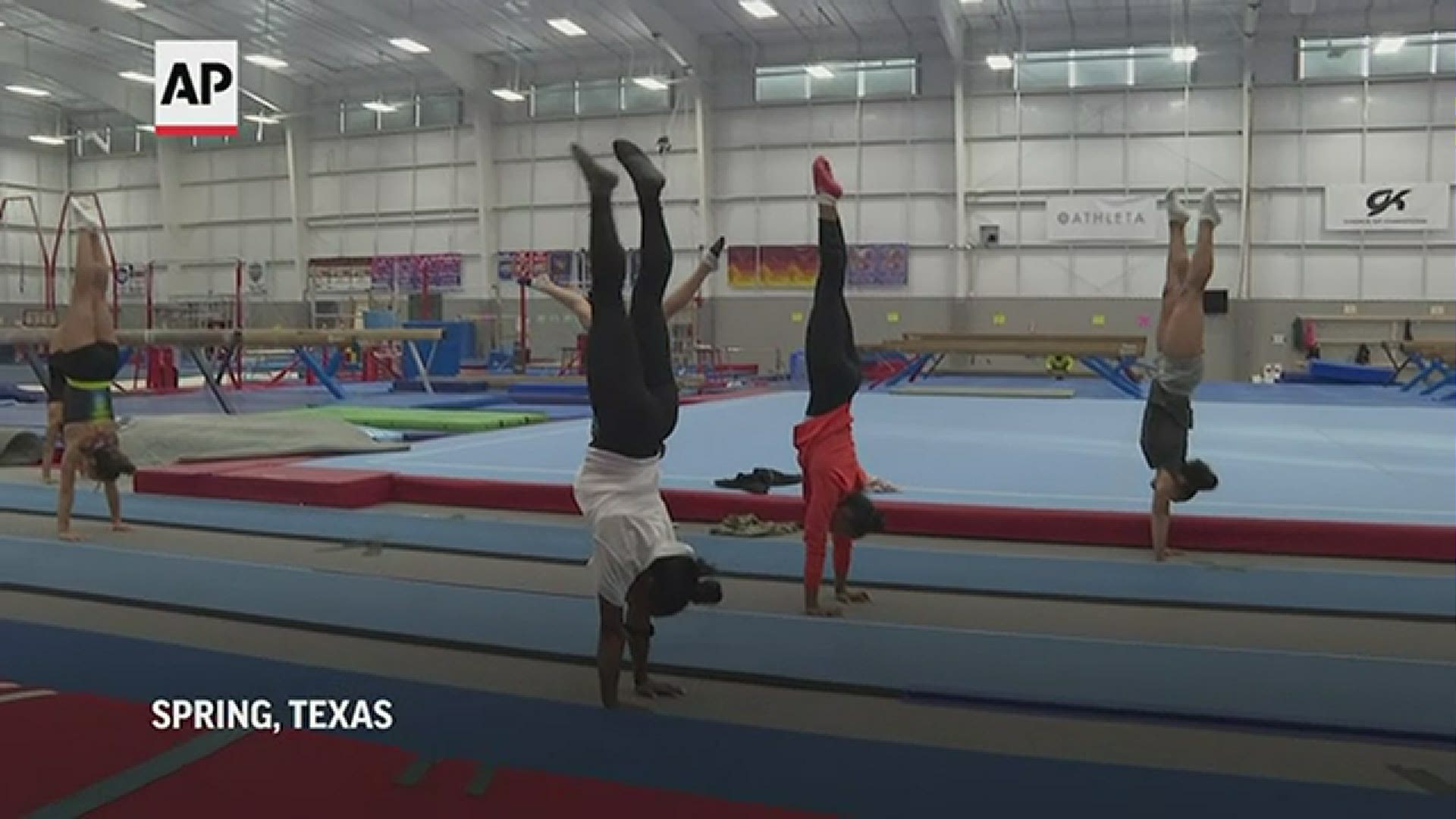Simone Biles is aware of the pressure. She welcomes it. Practically invites it. Look no further than the sequined goat she's nicknamed “Goldie” that occasionally finds its way onto her competition leotard.
The symbol — a play on the acronym for greatest of all-time — is both a nod to her hard-earned status as the most talented gymnast (and maybe athlete) on the planet and the outsized expectations she faces, both internally and externally.
It's a delicate dance, one that will take center stage when the 24-year-old American steps in front of the world in Tokyo. No pressure. All she has to do is somehow one-up her staggering performance in Rio de Janeiro, when she won five medals (including four gold) and entered the rarified air of Olympic royalty reserved for the likes of Michael Phelps, Usain Bolt and Nadia Comaneci.
Yes, it's a lot. Then again, whatever bar is set for her by others pales in comparison to the bar Biles sets for herself. It's why she found herself in tears at the U.S. Olympic Trials, when an off night in the finals left her frustrated and angry.
“I feel like anything rather than my best will tick me off,” Biles said.
It's that drive that led Biles to return to the gym after a year off following her remarkable success in Brazil. New coaches Laurent and Cecille Landi helped her put together a plan that didn't ask her to simply regain the skills that made her the best in the world, but build upon them.
She's unveiled a series of boundary-pushing elements over the last four years, and her latest — the Yurchenko double-pike vault, which has only previously been done in international competition by men — will become the latest to bear her name in the sport's Code of Points if she's able to land it in Japan.
Yes, Biles is well aware of her influence. She didn't get into this trying to become a point of inspiration. Yet she's hardly running from the responsibility.
“When somebody is striving for perfection and doing her skills, it pushes other athletes to know that it’s possible and that they can do it, too,” Biles said. “So, I feel like I would say we have reached a point where gymnastics is getting more difficult and more difficult and a little bit more dangerous. So we’re kind of walking on eggshells here, but it’s exciting to watch.”

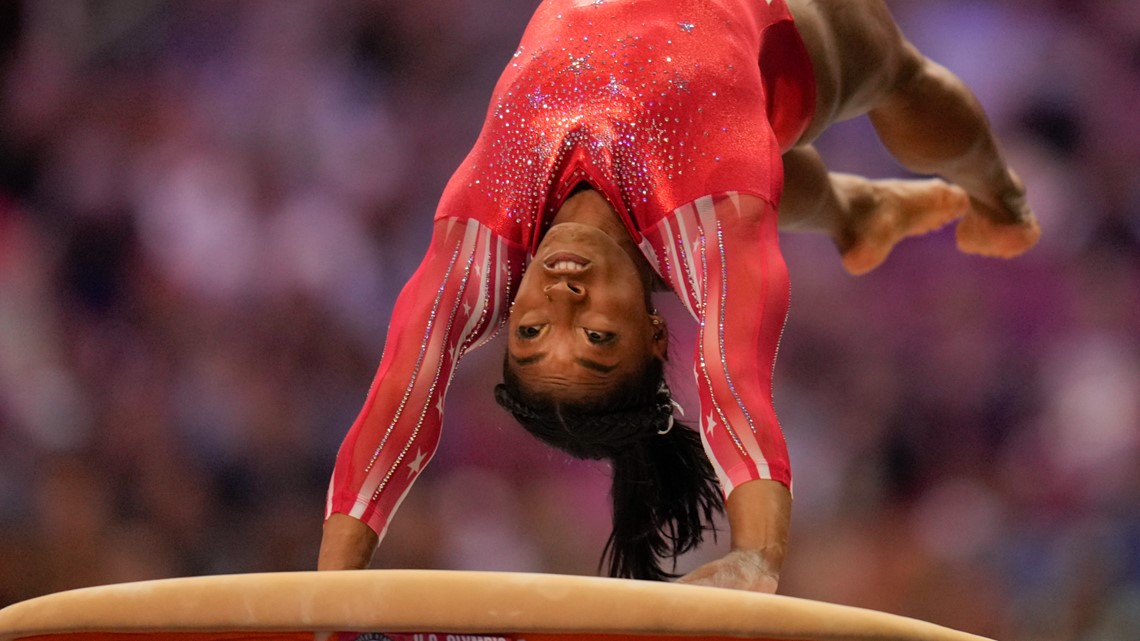
Other things to look for in Tokyo:
ABUSE SCANDALS
The competition floor isn't the only place the sport is treading carefully.
Gymnastics has spent much of the last five years trying to address a culture of abuse at the elite level all over the globe. The scandal surrounding disgraced former U.S. national team doctor Larry Nassar — who sexually abused athletes ( Biles included ) under the guise of medical treatment — started a reckoning of sorts.
Federations from the U.S. to Great Britain to Australia have been grappling with how to create a healthier atmosphere for their elite athletes. Whether any real progress has been made won't be known for years, though the top American women allow the vibe is more relaxed now than it was during former national team coordinator Martha Karolyi's highly successful — and highly divisive — tenure.
“I feel like it's a lot more fun,” said MyKayla Skinner, who will compete as an individual qualifier.
TALENT OVERLOAD
At least for the Americans, who are heavily favored to win their third straight Olympic title. Sure, having Biles helps. But the U.S. squad is as loaded as ever. Sunisa Lee, who actually outscored Biles in the all-around during the second day at Olympic Trials, is a revelation on uneven bars. Jordan Chiles steadiness in 2021 turned her from a fringe Olympic candidate to a gymnast who may come back to the States with multiple medals.

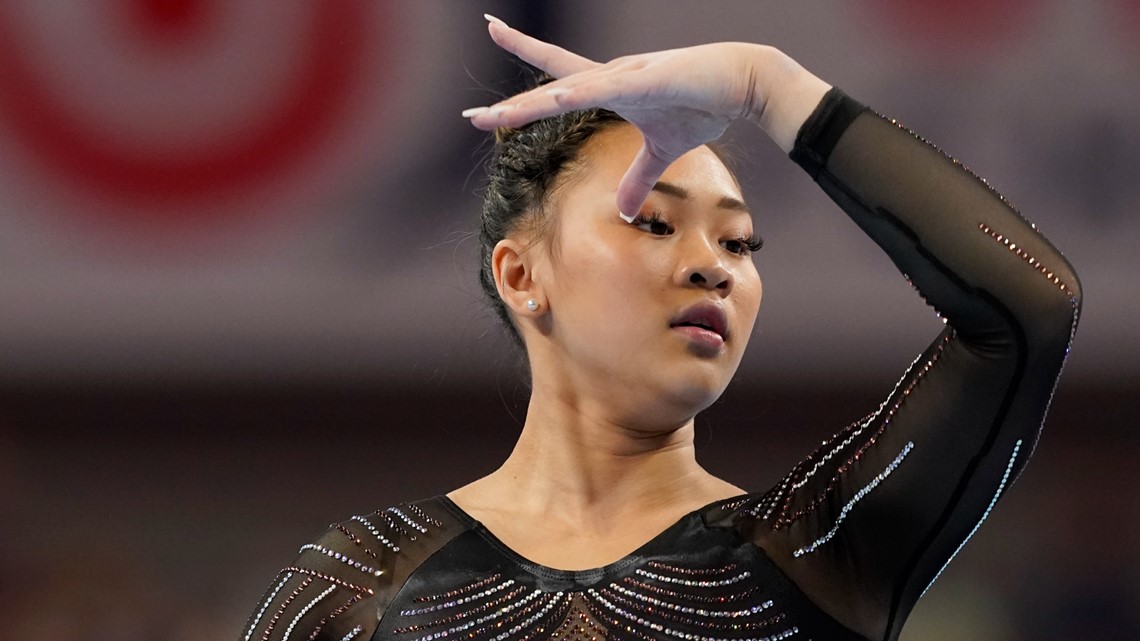
There's so much wiggle room, national team coordinator Tom Forster admitted he actually potentially sacrificed a few tenths of a point by choosing Grace McCallum to fill out the four-woman team instead of Skinner.

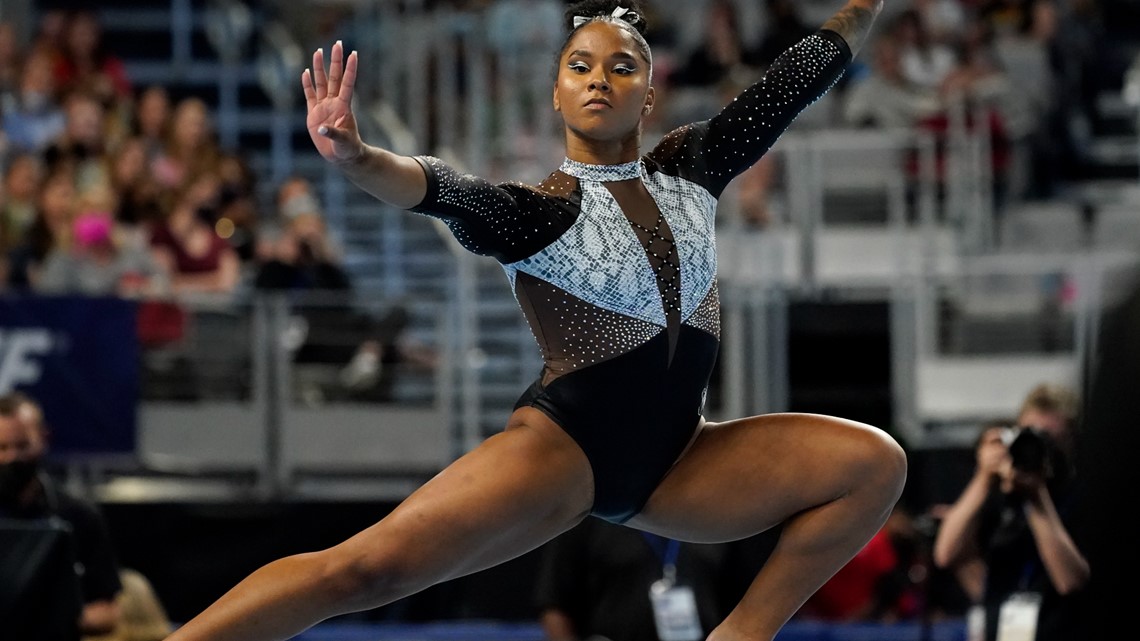
“We’re so, so fortunate that our athletes are so strong that I don’t think it’s going to come down to tenths of a point in Tokyo,” Forster said.
THE MEN
It might, however, in the men's competition, where Russia, China and potentially host Japan figure to be in a fight for the top of the podium in the team event. Russian Nikita Nagornyy, the 2019 world all-around champion, leads the field in the men's all around.
There has been a changing of the guard of sorts among the American men, who are trying to get back to the podium for the first time since the 2014 world championships. Brody Malone, a 20-year-old from northwest Georgia, supplanted six-time national champion and two-time Olympian Sam Mikulak as the program's standard-bearer after winning both the U.S. championships and the Olympic Trials.

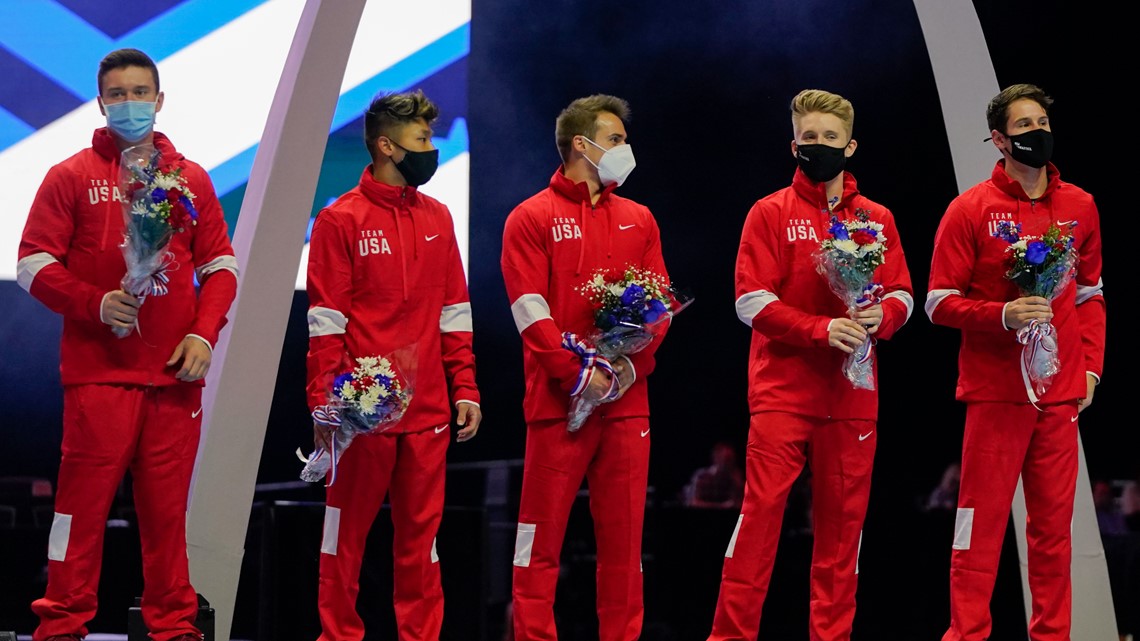
ONE MORE TIME
The Games will also serve as a goodbye for a couple of Olympic legends. Two-time Olympic champion Kohei Uchimura of Japan — in many ways, the men's equivalent of Biles — will get a chance to say take a bow in front of his homeland after qualifying as an individual. And 46-year-old Oksana Chusovitina of Uzbekistan will compete in her record eighth Olympics.
Chusovitina has pledged she's ready to retire several times through the years. Yet this is likely her last stand. It may be for Biles, too. But maybe not. Her coaches are French, and she hasn't ruled out a third Games as a way of thanking them for helping rekindle her love for the sport.
For now, however, Tokyo awaits.


“I'm very relieved that Olympic Trials is over and we still have a lot of work to put in once we get over there," she said. “But I’m super excited."
So is everyone else.

